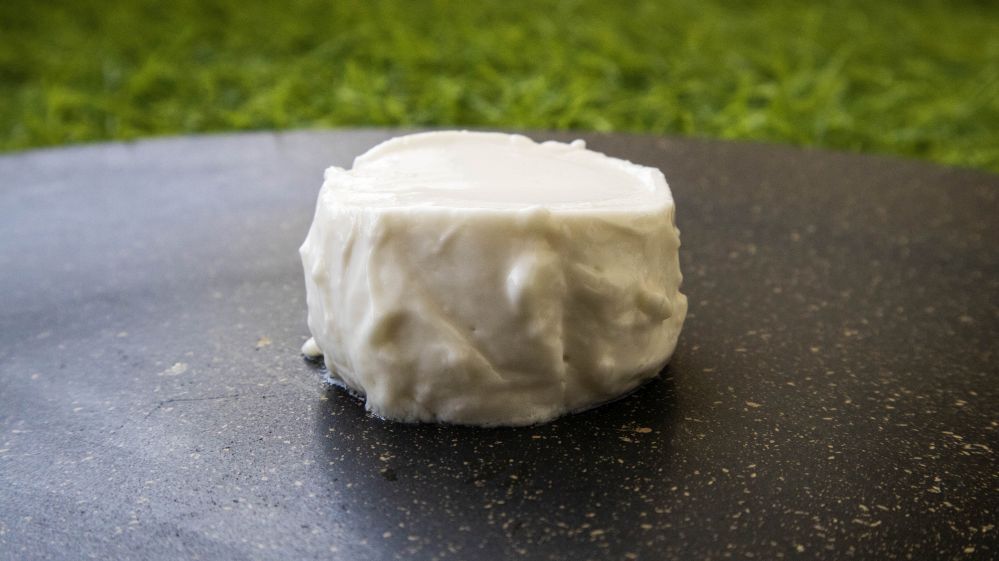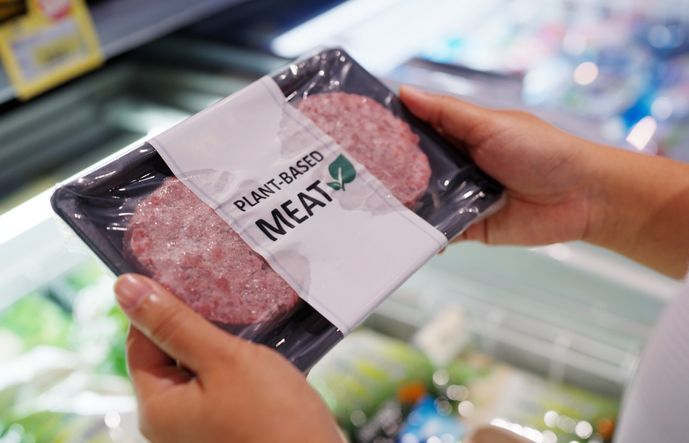From hydrogenation to interesterification, there are many ways to change the properties of fats, says Fattastic Technologies founder Satnam Singh. But finding a cost-effective, scalable approach to create the next generation of healthy fats for meat and dairy alternatives has proved elusive.
Currently, most plant-based meat formulators turn to coconut oil, which is high in saturated fat, doesn’t taste like animal fat, and melts when the meat starts cooking, leaking out of the food matrix, he says.
Multiple alternatives are therefore being explored, from fats made via microbial fermentation (Melt & Marble, Aio, Circe, Yali Bio, Zero Acre Farms, c16 Biosciences, Nourish) to cell-cultured fat (Mission Barns, Believer Meats), adds Singh. But initially at least, these may come with a hefty price tag and will need to secure regulatory approvals.
Singapore-based Fattastic, by contrast, is deploying oil structuring technology that “produces fats that more accurately mimic the texture, mouthfeel and flavor of animal fat” but doesn’t require expensive equipment or costly food safety dossiers, Singh (SS) tells AgFunderNews (AFN).

AFN: Tell us about the genesis of Fattastic Technologies…
SS: I was born and brought up in India, but I moved to Singapore in 2017 to do my master’s degree and then got a job working in alternative proteins at the [Singapore government] Agency for Science, Technology and Research (A*STAR).
I was working on various things in the alt protein space including biomaterials for scaffolding in cellular agriculture, and I tried all the alternative protein products but did not like them.
After a while I thought how can I use the knowledge I had developed over the years to make these products more appealing to the consumer?
I could see that fat is the key component for making these products tastier, but also potentially healthier, so I quit my job to start my own company.
We’re headquartered in Singapore where an ecosystem of investors and the regional R&D centers of several large food companies are based, and we are also in the process of registering in India, where our primary R&D activities are based.
AFN: Why are alt meat companies looking for alternatives to coconut oil?
SS: First it smells and tastes like coconut. Second, the texture is not the same as animal fat and it doesn’t have a high enough melting point. Third, it’s high in saturated fat, and finally from a supply chain perspective, we can’t rely on one source of fat as an industry.
AFN: How cost effective and scalable is your approach vs other startups making ‘designer fats’?
SS: Approaches such as microbial fermentation [engineering microbes to make more animal-like fats] and cell-cultured fats [growing real animal fat cells in culture] are very good. But they’re not scaled up and available now to meet demand.
That’s why I turned to plant-based ingredients to structure oil and water in a way that make liquid oils behave more like solid fats but also encapsulate flavors, aromas, and also nutrients, which is something very different in the market.
Our capex is significantly lower, as we only require general machinery to scale up our technology, making our product cost-effective and affordable. Our technology can also work with lots of different oils; it’s oil agnostic. The other advantage we have is that we don’t have to go through these expensive regulations [governing novel foods or GMOs].
AFN: How does your approach compare to techniques such as hydrogenation or enzymatic interesterification?
SS: With hydrogenation or enzymatic interesterification, you’re actually changing the lipid structure; we don’t do that. We’re just changing the physical state of the oils, changing them from a liquid to a solid state with our unique approach that structured oil and water within a gel network.

AFN: What makes your fats appealing to alt meat companies?
SS: I can’t go into too much detail [because Fattastic is filing patents], but we can reach very high melting points [for the structured fats] of up to 120 degrees Celsius. We’ve also used the fat in bakery applications and it has worked phenomenally well. Even if you keep it at ambient temperature, its oil binding and water holding capacity is really good, which makes it more stable.
We also have the capability to adjust the melting point, so we can make it softer or harder for different applications.
From a nutritional perspective, meanwhile, it is much lower in saturated fat than coconut oil.
The other thing that makes us different is that we can also encapsulate flavors, aromas, and nutrients, whether they are water or fat soluble.
AFN: What is your first product?
SS: We’re a b2b company and we’re going to begin with a basic product which companies can buy [off the shelf], but we will also offer customizable fats where we will work with companies that want to encapsulate, say, omega-3s, certain vitamins, or flavors.
AFN: How would your structured fat be listed on a food label?
SS: You’d first have the name of the plant oil, such as canola, and then would there be up to four more ingredients, which are all recognizable food grade ingredients.
AFN: Who’s on the team and how have you funded the business to date?
SS: We were founded in July 2022, and today we are a team of five people. We have raised money from Entrepreneur First, the ProVeg incubator and a VC firm I can’t name yet.
AFN: What IP do you have?
SS: We’re in the process of applying for a provisional patent.





